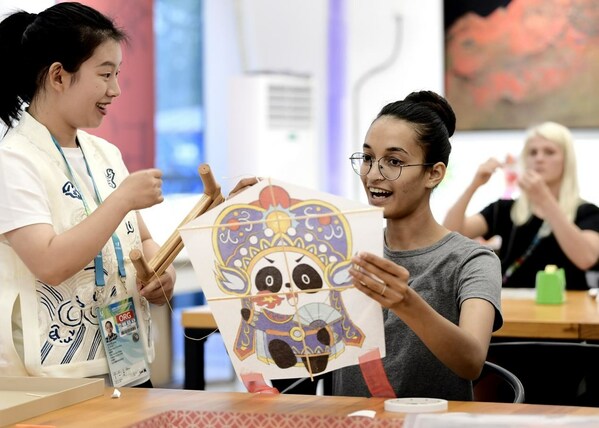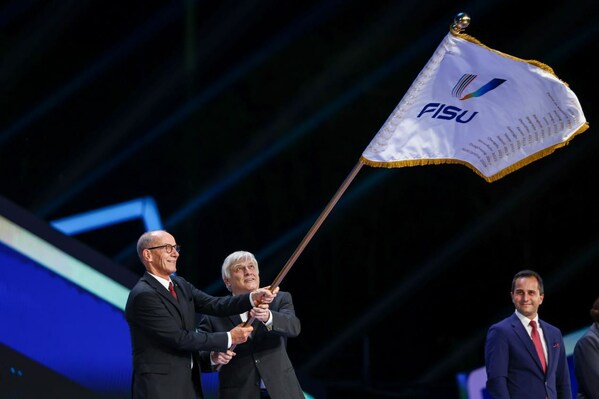CHENGDU, China, Aug. 9, 2023 /PRNewswire/ — A news report from Xinhua: On August 8, as the representatives of the International University Sports Federation (FISU) and the mayor of Chengdu handed over the flag to the representatives of the next host city, Rhine-Ruhr, Germany, fireworks flared up above the closing ceremony venue Chengdu Open-Air Music Park, officially drawing to a close of the 12-day Chengdu FISU Games. 6,500 athletes participated in the competition, aptly summarized in the theme of the event: “Chengdu makes dreams come true.”
“Chengdu is the springboard of my dream,” Japanese team goalkeeper Ayumu Kinoshita indicated as he walked out of the men’s water polo arena. Participating in an international competition for the first time, Ayumi Kinoshita and his teammates did not end up among the best of the best, but “every team has its strengths. Competitions enable me to see the differences in our ability and further fuels me to pursue my goal. I want to be a water polo coach and promote the sport in the future,” he explained.
For Thai taekwondo athlete Panipak Wongpattanakit, her hard work paid off in Chengdu as she won gold in the women’s 49kg final. “I have realized my dream in Chengdu, which is to win the gold medal, and I am just completely ecstatic. My appreciation goes to the organizers, because the facilities here are exceptional,” she said.
Chengdu, the capital of Sichuan Province and a city in China’s western hinterland, has been launched into the spotlight for hosting the World University Games. Its gorgeously “colorful” characteristics with unique Chinese charms and Bashu verve have fascinated people from various countries and regions around the world.

A foreign athlete learns how to make a kite at the Interactive Experience Centre of the Chengdu FISU Games Village.
During the Chengdu FISU Games, “going for hot pot after the competition” is a joyful event popular among the young participants hailing from around the world. Malaysia’s Hui Ling Tammy tan has made no secret of her love for the Sichuan specialty, “I love hot pot, just like the passion of the Chengdu people.”
As a super icon of China, the giant panda has a gentle, peaceful yet courageous character, embodying the harmonious temperament of openness and inclusiveness, melding vigor with grace in a manner indicative of traditional Chinese culture. “I am so fortunate to have seen the real giant pandas with my own eyes. They are absolutely adorable,” exclaimed Pavel Schbjbal, a Czech sport shooter. The giant pandas constitute the most amazing and memorable part of his visit to Chengdu, and he didn’t even mention the medal he won. Among the 11 “leisure in Chengdu” urban cultural sightseeing experience routes designed by the Urban Work Service Department of the Executive Committee of the Chengdu FISU Games, the route offering the giant panda base experience was almost always full.
“Athletes from all countries (and regions) strive hard on the field and foster exchanges off the field. Interactions between different cultures are important, these stories that they take back and relay to more people will enable an increasing number of worldwide folks to get to know Chengdu better and understand China better. That is the magic of the FISU Games,” Leonz Eder, acting president of FISU, said in an interview.
















